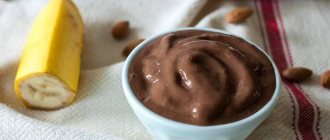What are the benefits of cucumbers?
It is difficult to overestimate the benefits of fresh cucumber, because this vegetable is the leader in water content, which accounts for up to 97-98% of the mass. In addition, it contains proteins, fats and carbohydrates. Their percentage depends on fertilizers, watering and the composition of the soil in which the cucumber grows. It also contains many vitamins, fructose, healthy essential oils and plant enzymes.
Of particular value in this product is fiber, which is found in large quantities in cucumber peel. It cleanses the body of accumulated toxins. This is especially true when baby food was not of sufficient quality.
Tartronic acid is another unique component of the composition. It reduces the rate of growth of fat deposits and is indicated for overweight people. Cucumbers are used as a therapeutic food for obesity.
In small quantities, cucumber contains:
- Iodine. Positively affects the functioning of the thyroid gland. Iodine is involved in mental development and strengthens the nervous system. Iodine deficiency in a child increases fatigue, reduces attention and leads to disruptions in the functioning of the body.
- Silicon. Strengthens hair, nails and is responsible for skin health. A lack of this microelement in the body can provoke pathological conditions - softening of bones and anemia.
- Sulfur. One of the 5 most important components for the human body. It is involved in protein synthesis, including collagen. Sulfur affects blood clotting, and its deficiency leads to decreased immunity.
The benefits of fresh cucumbers for a child are to enrich the body with vitamins and strengthen the immune system.
Why should you eat green vegetables?
Lettuce, spinach, broccoli, green peppers... Green vegetables contain many valuable nutrients, making them one of the healthiest vegetables. In addition to chlorophyll, which gives them their color, they supply magnesium, folic acid, potassium and vitamin C.
The richest source of chlorophyll are young leafy vegetables. They are characterized by beneficial effects in mitigating inflammation, restoring acid-base balance, and maintaining liver function.
Cooking greatly limits their potential for our health, so we get the most benefit from eating vegetables raw or with the cooking time as short as possible. Due to the fact that they provide many essential vitamins and minerals, while having a very low energy value, they are especially recommended for people on a diet.
Below you will find some examples of green vegetables whose properties will certainly encourage you to include them in your daily diet.
Broccoli
It has many valuable properties that make it one of the healthiest vegetables in the world. Has many nutrients and is extremely easy to prepare.
The powerful dose of antioxidants it contains helps protect against cancer, especially cervical, breast and prostate cancer.
Thanks to its high content of beta-carotene, zinc and selenium, it strengthens the immune system.
Lutein, vitamin B6 and folic acid counteract heart disease and vision problems, while high levels of vitamin C provide anti-inflammatory benefits.
Broccoli can be eaten raw or cooked. To mitigate the gas-forming effect, consume it with fennel or cumin seeds.
Sorrel
It is a perennial plant whose leaves contain significant amounts of iron, vitamin C and vitamin A, as well as soluble potassium oxalates, which give it its characteristic taste. Has antioxidant and anti-aging effects.
Despite many beneficial properties, the oxalates contained in sorrel are deposited in the urinary tract, which is not good for health. This leads to the development of urolithiasis, that is, deposits of hard stones in the bladder and kidneys.
To prevent the harmful effects of sorrel, add ingredients that contain calcium and vitamin D to your meals, such as dairy products such as yogurt.
Green pepper
It is a valuable source of folic acid, which, in addition to ensuring the correct structure of body tissues, prevents the development of defects in the child in the womb.
Green peppers contain a large amount of vitamin E, which is called the vitamin of youth (delays the aging process). It affects the proper functioning of the nervous system, prevents the breakdown of red blood cells, and promotes the development of muscle tissue.
Green onions
Adding green ingredients such as green onions to dishes not only adds aesthetics and taste, but also enriches them with valuable nutritional compounds such as vitamins A, K, C, folic acid, magnesium, calcium, phosphorus and potassium.
The smell and taste of onions are due to the sulfur compounds present in them. Its properties include: stimulating appetite, facilitating digestion and fighting oxygen free radicals.
Green onions can be used as an addition to sandwiches, added to salads, pastas and many other dishes.
Salad
Arugula, iceberg, romaine... the list could take a long time. There are many types of lettuce, and they all have the nutrients needed to keep you healthy.
Chlorophyll, which gives salad its green color, has a bactericidal effect and accelerates wound healing. And zeaxanthin and lutein present in the leaves are strong antioxidants that protect against macular degeneration.
These vegetables are ideal as a component of salads and as an addition to sandwiches. Due to its low calorie content and high fiber content, salad is a frequent guest on the menu of people on a weight loss diet.
Source: https://dary-prirody.su/pochemu-nuzhno-est-zelenye-ovoshhi/
Harmful to young children
Nursing mothers and one-year-old babies should introduce fresh cucumber into their diet with caution. It should be remembered that what mothers eat ends up in the child’s body. Fiber, contained in large quantities in cucumber, can cause intestinal upset and colic in the baby.
Consider also the time of year. Children can only be given cucumbers in summer. Choose soil-based vegetables to feed your child. Greenhouse cucumbers contain harmful nitrates. For the same reason, you should not offer your baby early cucumbers.
Cucumber juice irritates the mucous membrane of the gastrointestinal tract. If your child has digestive problems, consult with your attending physician before introducing fresh cucumber into complementary foods.
Cucumbers on the children's menu
Almost all pediatricians agree that babies should not be given cucumbers until they reach one year of age. Although they do not cause allergies, they can often cause colic, increased gas formation in the intestines and other problems of this kind. Such phenomena are due to the fact that babies have not yet fully adapted to normal food and their body does not yet produce a full complex of enzymes so that they can eat any food without restrictions.
Cucumbers almost never cause allergies, but you need to be careful not to buy vegetables with nitrates for your baby. Under no circumstances should you start getting acquainted with this product with greenhouse fruits - they have no benefit, and due to their cultivation on fertilizers, they can even be harmful. Rules for introducing cucumbers into a baby’s diet:
- For the first time, a small piece weighing 5–10 g is enough, gradually the portion can be increased.
- Always give your baby only peeled cucumbers.
- During the period of adaptation, it is better to offer the baby crushed puree - this way the product is better accepted by the stomach. Later, when the child gets used to it, start preparing salads for him: at first only with dill and parsley, after a while you can add tomatoes, peeled, of course.
Important! It is best to season children's salads with vegetable oil, sunflower or olive oil. Do not add mayonnaise to them under any circumstances; this product is completely unnecessary in children’s diets!
Timing for introducing cucumbers into the diet
When should you give your baby a cucumber for the first time? You can introduce fresh cucumber into complementary foods no earlier than 1 year. At an earlier age, the child’s body does not yet have enough enzymes to digest and absorb the coarse fiber of this vegetable.
On the other hand, you should not focus on age restrictions down to the day. If the baby is healthy and does not have a tendency to allergies, and the cucumber season is in full swing, then you can give a cucumber to an 11-month-old child to try. Just don’t forget that, like any product, you need to add it to the menu gradually. Some mothers can boast that their child has been eating cucumbers since 9 months, but there’s still no need to rush.
Peel a small piece of the vegetable, grind it into a puree (this will get rid of some of the fiber) and give it to your baby to try. After eating, carefully monitor the child's skin and mucous membranes. If there is no food allergy, then you can continue to give cucumber the next day, gradually adding the vegetable to your usual menu.
Remember that you should not give your baby 2 new foods on the same day, otherwise it will be impossible to determine which dish the child’s body could not cope with. If you have any doubts or have contraindications, consult your doctor.
Separately, I would like to raise the question of how many months and for how long can a baby be given pickled cucumbers. They are not as healthy as fresh ones, since most of the beneficial properties are lost during cooking. Lightly salted, pickled and pickled cucumbers are strictly prohibited for children under 1 year of age. Such food can be included in the menu only after 3 years.
Harm and contraindications in childhood
Pickled cucumbers (especially if consumed in excess) can cause a bunch of side effects in your baby:
- swelling;
- excessive thirst;
- diarrhea (laxative effect);
- increased gas formation;
- high blood pressure (up to the development of hypertension) and rapid heartbeat;
- sleep disturbance;
- behavioral disorders;
- inflammation of the oral mucosa;
- toothache (as lactic acid eats away the enamel).
The content of salt, sugar, spices and vinegar in pickled and pickled cucumbers is the cause of contraindications:
- diarrhea;
- diseases of the gastrointestinal tract: gastritis, pancreatitis;
- heart and vascular diseases;
- disorders of the liver and kidneys;
- allergy to cucumbers or marinade components;
- caries, thin and sensitive tooth enamel.
Never give your baby pickles from a bulging jar that makes a hissing noise when opened. There is a high risk of severe poisoning.
Allergy to pickles
An allergy to pickled and pickled cucumbers can manifest itself in the form of skin rash, itching, irritation and redness of the eyes, increased tearing, runny nose and sinus congestion.
Canned cucumbers are dangerous not only because of the salt and vinegar they contain, but also because of the presence of spices, flavors and preservatives. They are a common cause of allergic reactions.
In severe cases, nausea, vomiting, abdominal pain, and swelling of the airways may occur, which will be indicated by shortness of breath and difficulty breathing. Call an ambulance immediately!
Can a baby choke?
The danger of lightly salted cucumbers for a small child also lies in the risk of suffocation. The baby may choke as the product has a hard peel and is difficult to chew.
Therefore, do not give a whole cucumber, as the baby may unintentionally bite off too large a piece. It is better to cut the vegetable into small pieces, offer no more than 1-2 mugs and keep an eye on the child while he eats.
High salt content
According to the American Heart Association, eating a lot of salty foods early in life leads to unhealthy eating habits in adulthood. Such children, as adults, become obsessed with salty foods. Needless to say, this will not bring health benefits.
Apart from homemade pickles, almost all pickles are high in sodium. When purchasing pickles in the store, parents should read the label carefully and remember that the doctor-approved daily sodium allowance for young children does not exceed 1000 mg.
When to introduce salt into a child's diet.
Too much sugar
In addition to salt, industrial vegetables contain a lot of sugar: up to 6 g (or 1.5 tsp) for one large pickled cucumber. About the same amount is found in sugar cookies.
Experts warn that the total sugar content (including juices, breads, cereals, baby formulas and purees) in a child's diet should not exceed 1 tbsp. l. per day for a one-year-old child and no more than 2 tbsp. l. per day until adolescence.
How much sugar can a child have per day?
Flavors and preservatives
Industrial pickles necessarily contain something harmful to the child’s body: preservatives, flavor enhancers, color stabilizers, flavorings and much more. This is an additional risk of allergies, cognitive impairment in the child and the development of chronic gastrointestinal diseases.
The solution is to find organic pickles or master homemade pickling recipes. And let the cucumbers you prepare yourself be less dull, but definitely natural.
Pickled or salted - which one to choose?
Pickled cucumbers contain vinegar, a lot of salt and sugar. All these substances are harmful to children. Vinegar destroys tooth enamel, corrodes the mucous membrane of the digestive tract and negatively affects the child’s nervous system. There are a minimum of vitamins in such vegetables - up to 80% of valuable nutrients are destroyed during the pickling process. Lightly salted barrel cucumbers look preferable. They contain no vinegar, much less salt and sugar, more vitamins and valuable lactic acid - a natural prebiotic that has a beneficial effect on the beneficial intestinal microflora.
Allergy to cucumbers
Allergies to cucumbers are very rare. An undesirable reaction occurs in children with hypersensitivity to products. This pathology almost never occurs in adults and appears more often in children. The reason for this is a weak and immature digestive tract.
Allergies are also associated with heredity and are passed on to children at the genetic level. Be sure to keep in mind that if you have a history of allergies in your family, the risk of the same problems in your child increases significantly. During treatment, you need to use antihistamines - Suprastin, Fenistil, Tavegil and others.
Fresh cucumbers can cause severe allergies in young children. Previously it was believed that this is a hypoallergenic vegetable, but recently the frequency of allergic reactions has begun to increase. Call them:
- the vegetable itself, if it has managed to absorb various chemicals and fertilizers;
- stems and leaves of the plant;
- pollen.
The allergy mainly manifests itself on the face in the form of a rash near the mouth. Stomatitis, sore throat, sore throat and other unpleasant symptoms may develop. Severe allergic reactions include nausea, lacrimation, and Quincke's edema. When the above symptoms first appear, be sure to consult your doctor, as the child’s life may be at risk.
Pediatrician of the 2nd category, allergist-immunologist, graduated from the Belarusian State Medical University of the Federal Agency for Health and Social Development. Read more »











